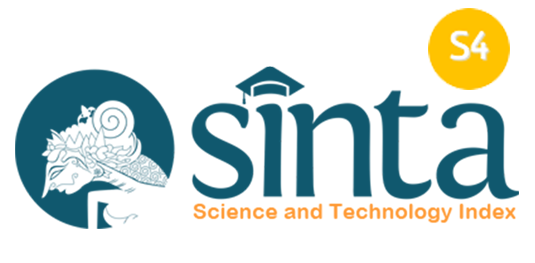Improving Simple Calculation Ability In Student With Intellectual Disabilities Using The Guess Game
Abstract
Students with intellectual disabilities often have difficulties in simple arithmetic so that the expected learning objectives are not achieved, the purpose of this study is to improve the simple arithmetic ability of fourth-grade students of Special school Putra Pasundan 1 Banjar city. This research method uses classroom action research that takes place in two cycles, each cycle consisting of 2 meetings, the research subjects are 4th grade Student With Intellectual Disabilities with mild mental retardation. The data collection technique used is observation and test learning outcomes. The data analysis used is descriptive qualitative which consists of 3 stages, namely (1) data reduction, (2) data display, and (3) making conclusions and verification. The data collected shows that number guessing games can improve simple counting skills in fourth grade mentally retarded children at the Special school of Putra Pasundan 1, with pre-test/pre-cycle data, no students can reach the minimum assessment limit and the percentage in cycle 1 is 50% or 2 students, who get scores that meet the minimum assessment limit have shown an increase after cycle 2 is carried out all students (4 students) have reached the standard limit minimum assessment in percentage that is 100%. In addition, the use of guessing games increases active participation, is more motivated, has a sense of togetherness, and fosters self-confidence. This research is useful for teachers to guide Student With Intellectual Disabilities in learning simple arithmetic, especially adding up using number guessing games.
Keywords
Full Text:
PDFReferences
Ariyanti, A., and Muslimin, Z. I. (2015). Efektivitas alat permainan edukatif (APE) berbasis media dalam meningkatkan kemampuan berhitung pada anak kelas 2 di SDN 2 Wonotirto Bulu Temanggung. Jurnal Psikologi Tabularasa, 10(1) 56-69.
Asri, A. (2019). Upaya meningkatkan kemampuan berhitung permulaan melalui metode jarimatika. Humanis: Jurnal Ilmu-Ilmu Sosial Dan Humaniora, 11(2), 137-146.
Cohen, R., Reznick, R. K., Taylor, B. R., Provan, J., & Rothma, A. (1990). Reliability and validity of the objective structured clinical examination in assessing surgical residents. The American Journal of Surgery, 160(3), 302-305.
Gumilang, G. S. (2016). Metode penelitian kualitatif dalam bidang bimbingan dan konseling. Jurnal Fokus Konseling, 2(2)144-159.
Moyer, P. S. (2001). Are we having fun yet? How teachers use manipulatives to teach mathematics. Educational Studies in mathematics, 47(2), 175-197.
Nolan, J., and McBride, M. (2014). Beyond gamification: reconceptualizing game-based learning in early childhood environments. Information, Communication & Society, 17(5), 594-608.
Novianti, R. (2015). Pengembangan permainan roda putar untuk meningkatkan kemampuan berhitung angka anak usia 5-6 tahun. Jurnal Educhild: Pendidikan dan Sosial, 4(1), 56-63.
Pang, M. F., and Ling, L. M. (2012). Learning study: Helping teachers to use theory, develop professionally, and produce new knowledge to be shared. Instructional science, 40(3), 589-606.
Utami, W. Z. S. (2017). Pengembangan media pembelajaran matematika untuk meningkatkan konsentrasi dan minat belajar siswa tuna grahita. Jurnal Teknologi Pendidikan: Jurnal Penelitian dan Pengembangan Pembelajaran, 2(1), 76-87.
Wulandari, S., and Prasetyaningrum, S. (2018). Media stamp game untuk meningkatkan kemampuan berhitung anak slow learner di sekolah dasar. Psympathic: Jurnal Ilmiah Psikologi, 5(2), 131-148.
DOI: https://doi.org/10.17509/jassi.v21i1.39761
Refbacks
- There are currently no refbacks.
Copyright (c) 1970 Universitas Pendidikan Indonesia

This work is licensed under a Creative Commons Attribution-ShareAlike 4.0 International License.




